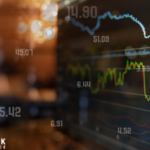Amid the political turbulence, Former President Trump has officially secured the GOP nomination, announcing Senator JD Vance as his vice presidential pick. The decision came just days after an assassination attempt on Trump during a Pennsylvania rally, highlighting the volatile nature of the current political landscape. Investors and political analysts alike are closely monitoring the potential implications of this new GOP ticket on market behavior and policy directions. The selection of Vance, a former Marine, private equity professional, and author, signals a strategic move aimed at consolidating various voter bases.
In previous elections, Trump’s nominations and political maneuvers have had significant impacts on market trends and investor expectations. The choice of running mate and campaign strategies often create ripples in the financial world, as seen during his initial 2016 run, where markets reacted to his unconventional policy proposals. JD Vance’s addition to the ticket is seen as a move to bring stability and a fresh perspective, potentially mitigating some of the volatility experienced during previous election cycles. Moreover, the assassination attempt injects a new level of uncertainty, reminiscent of past political shocks that have stirred markets.
In contrast, the current market optimism, with the Dow Jones (BLACKBULL:US30) Industrial Average closing above 40,000, reflects a cautiously optimistic outlook from investors. The GOP’s economic policies, which historically have focused on tax cuts and deregulation, continue to be anticipated as major drivers for market confidence.
Market Implications of the Nomination
Jason Katz, a senior portfolio manager at UBS, predicts that a GOP victory could lead to significant economic shifts. He anticipates the permanence of the tax laws established in 2017 and possibly additional tax cuts. Such measures are expected to reduce regulatory burdens and potentially stimulate a surge in mergers and acquisitions (M&A) activities. This perspective aligns with the broader market sentiment that favors the GOP’s economic policies for their potential to drive growth.
Federal Reserve Chair Jerome Powell’s comments on inflation also play a crucial role in shaping economic expectations. Powell indicated that policymakers are observing positive inflation data, suggesting that rate cuts might be on the horizon. This dovish stance by the Fed is seen as supportive of continued economic expansion, aligning with the GOP’s pro-growth agenda.
Potential for Volatility
Chief market strategist at Ameriprise Financial, Anthony Saglimbene, warned of potential market volatility leading up to November. He noted that election outcomes often bring periods of uncertainty until post-election day, when market fundamentals such as interest rates, growth, and corporate profits regain focus. This outlook suggests that while immediate reactions to political events might cause fluctuations, long-term trends are driven by fundamental economic factors.
The recent drop in the consumer price index, the first since May 2020, supports this outlook. Despite year-over-year prices remaining elevated, the trend indicates a slowing inflation rate. This aligns with Powell’s views on the cautious approach to rate adjustments, ensuring that economic activities are not stifled prematurely.
Key Inferences
– The nomination of JD Vance is a strategic move to consolidate different voter bases.
– Market optimism reflects confidence in GOP’s economic policies.
– Potential for short-term volatility exists, but long-term trends will focus on economic fundamentals.
The GOP’s nomination of JD Vance as the vice-presidential candidate alongside Trump marks a significant development in the political landscape. The move aims to balance the need for fresh perspectives with the stability required during turbulent times. The assassination attempt on Trump underscores the heightened security and political risks in the current environment. Market reactions to this event indicate a cautious optimism, driven by expectations of pro-growth policies from a potential GOP administration. Additionally, the Federal Reserve’s stance on inflation and interest rates plays a pivotal role in shaping investor confidence. As the election approaches, stakeholders will closely monitor these developments to gauge their potential impact on both the political and economic fronts.










